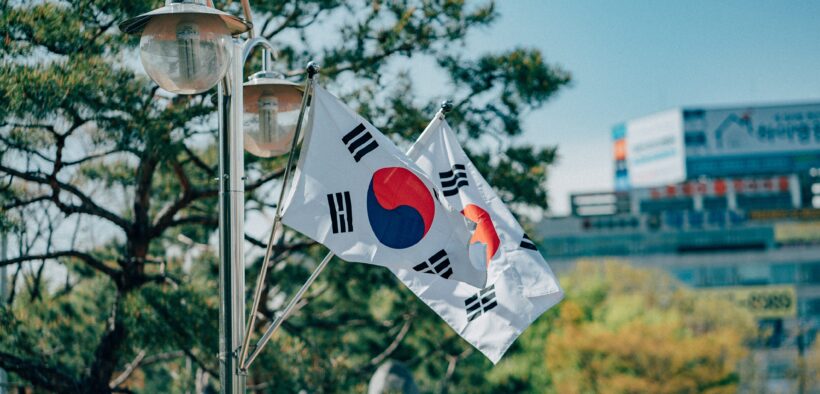Gender and National Duty: Mandatory Military Service in the Republic of Korea
Share

Image Credits: @nardly (Unsplash License)
Universal male conscription in the Republic of Korea is an essential part of life for the typical citizen. Male high school graduates include their enlistment plans in their schedules for higher education at a college or university. Millions of fans of male K-pop artists and actors dread the announcements of their favorite celebrities’ mandatory enlistment. Korean athletes intensely pursue gold medals at international competitions for a chance of an exemption from service. While the effect of the Korean conscription law on the male population is apparent, there is an equally impactful consequence of the law for women and their role in society. Compulsory military service undoubtedly plays a pervasive role in society, and its presence perpetuates the gender divide and conservative norms that hold back growth and efforts to solve the country’s inherited problems.
In the context of this article, the terms Republic of Korea and South Korea will be used interchangeably to refer to the country synonymously. The terms Korea and Korean will be used to either refer to the unified Korean nation preceding the 1950 to 1953 Korean War or in shortened reference to the Republic of Korea and its population based on context.
History and Context of Universal Male Conscription
The practice of military conscription in Korea has generally been in place for centuries, dating back to the Goryeo Dynasty near the beginning of the second millennium. However, it only became official law in 1910 as a response to the Japanese invasion and occupation of the Korean peninsula at the time. Compulsory service, throughout Korea’s history, has generally been a result of the necessity for strong national defense and security. The modern conscription law in place today is mandated by the Constitution of the Republic of Korea, established in 1948. While the laws and requirements of conscription have evolved throughout the Korean War and in the following decades, the policy remains a fundamental and relevant aspect of the government, national defense, and domestic politics and society. In Chapter II, Article 39(1), the Constitution states that “All citizens shall have the duty of national defense under the conditions as prescribed by Act.” This further exemplifies the degree to which conscription is ingrained in modern society, as it is directly written into the constitution of the present state. Current tensions with the Democratic People’s Republic of Korea at the northern border and the continuous situation of the Korean Demilitarized Zone, or DMZ, are also factors that contribute to the prevalence of militarism in South Korea.
In 1993, the Military Service Act was passed into law and formally outlined the requirements for mandatory service as it is known today. Most recently updated in 2011, it states in Article 3(1) that “Every masculine gender of the Republic of Korea shall faithfully perform military service, as prescribed by the Constitution of the Republic of Korea and this Act; a feminine gender may perform only active service or reserve service through volunteering.” Predictably, women make up a very small percentage of the Republic of Korea’s total forces, 6.8 percent as of 2019. In comparison, the composure of the United States military was 17 percent female in 2019, nearly two and a half times more than that of South Korea. A reason for the disparity of military participation of women in South Korea is attributed to the general belief that military service is principally a men’s issue and the perpetuation of a patriarchal system and culture.
The duration of service among conscripted men varies among the branches of the military; though typically, it can last from 18 months in the Army up to two years in the Air Force. This is listed in Article 18 of the Act; the law also defines conscription as an “imposed duty by the State,” which excludes female volunteer service members. Women who enlist in the military are only allowed to do so in a professional capacity, meaning their path in the military is always career-related and somewhat lacks some of the patriotic qualities that service has for men.
Gender, Society, and Expectations
The issue of male military conscription is a decisively gendered fact of life in Korean society. It is generally expected that every genuine Korean man spends his time in service. This expectation also comes with animosity towards those who attempt to avoid or circumvent his national duty to the country. Ethnically Korean emigrants and foreign-born nationals who do not fulfill their national duty are often not viewed as fully Korean by many citizens. This binding stigma associated with Korean men who do not fulfill their national duty implies further expectations and beliefs about women’s national duty and their role in society. Because Korean women are not expected to serve in the military, they are subject to rigid gender roles that define women’s national duty to the country as serving the household and being responsible for childcare, among other domestic duties. Women are customarily the primary caregiver in a home and are expected to continue serving their role even if they decide to pursue a career and join the workforce.
The national duties of Korean women, to run their households in addition to their careers and livelihoods, are responsible for the challenges facing gender equality and social development in the Republic of Korea. According to the World Bank, the gap between women’s and men’s labor force participation is nearly 20 percent, with men participating at a rate of 72.4 percent in 2021 and women participating at a rate of 53.4 percent in the same year. This gap is notably larger than the average for high-income countries, where men participated in the labor force only 14.1 percent more than women in 2021. It is also estimated that women spend 3.2 times more hours than men caring for their families and doing unpaid domestic work. Another issue that faces the South Korean nation-state is the incredibly low birth and marriage rates, which are effects of the rigid gender binary and social norms. In an economy where women are forced to choose between their careers and bearing children due to the high costs of living, many choose their careers. For instance, the birth rate had plummeted at a rate of 64 percent during the past 20 years in Seoul, the largest city and capital of South Korea, as of 2021. This was accompanied by a 43 percent drop in the marriage rate in the same city. As of 2021, the current birth rate in South Korea is 0.81 total births per woman, which is shockingly low compared to the 1.5 total births per woman in high-income countries or the 2.4 births per woman in the global average. These statistics are indicators of the persisting consequences of the divide among the Korean population on the basis of gender, which is primarily caused by the necessity for national security and military conscription. This information also suggests the implicit impact of international security issues on the domestic population of South Korea.
Female Conscription, International Security, and the Next Generation
The issues described in this article surrounding universal male conscription in the Republic of Korea and its ensuing effects on domestic society and women are problems that are not likely to solve themselves over time or disappear in the near future. As long as there is a need for a robust national defense force, the Korean standards for national duty will remain. This raises concerns for the future and questions about the sustainability of the current system that is in place. For instance, the incredibly low birth rate in South Korea translates into a diminishing enlistee pool which is a major predicament for the next generation of national security. In response, the government plans to use technological alternatives in the form of unmanned aircraft and weaponized drones to augment the dwindling population. From a different approach, some Korean feminists have circulated discussions regarding the possibility of gender-neutral conscription and extending the draft for military service to include women. They argue that there is a notable demand for military personnel and having more women fill those positions could benefit society in more ways than one. Though there are concerns that women may face instances of sexual assault or harassment while in the military due to the lack of preventative and enforcement measures to deal with gender-based discrimination and violence. Still, much of the Korean population is less likely to look towards women as the solution to a lack of military enlistees and more likely to dismiss the issue to the Republic of Korea’s foreign defense allies, particularly the United States. While some of these policies among others may be a possible temporary fix to the South Korean defense crisis, the overall problem of gender inequality and the conflict between the gender binary is a critical issue that needs to be solved. The current systems in place that deal with national security and conscription are unsustainable, and South Korea is in more need of solutions than ever as North Korea steadily grows as an international threat and the domestic population crises heighten the stakes of Korean survival and prosperity.


Want to get involved?
Connect with us! Connect with us!